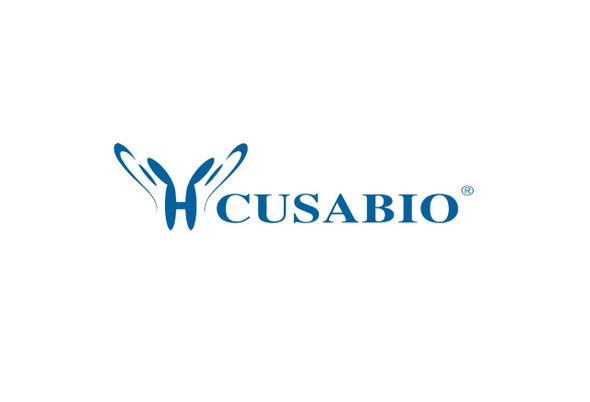Cusabio Human Recombinants
Recombinant Human xcitatory amino acid transporter 3 (SLC1A1), partial | CSB-EP021432HU
- SKU:
- CSB-EP021432HU
- Availability:
- 13 - 23 Working Days
Description
Recombinant Human xcitatory amino acid transporter 3 (SLC1A1), partial | CSB-EP021432HU | Cusabio
Alternative Name(s): Excitatory amino-acid carrier 1 Neuronal and epithelial glutamate transporter Sodium-dependent glutamate/aspartate transporter 3 Solute carrier family 1 member 1
Gene Names: SLC1A1
Research Areas: Neuroscience
Organism: Homo sapiens (Human)
AA Sequence: AEDVTLIIAVDWLLDRFRTMVNVLGDAFGTGIVEKLSKKELEQMDVSSEVNIVNPFALESTILDNEDSDTKKSYVNGGFAVDKSDTISFTQTSQF
Source: E.coli
Tag Info: N-terminal GST-tagged
Expression Region: 430-524aa
Sequence Info: Partial
MW: 37.5 kDa
Purity: Greater than 90% as determined by SDS-PAGE.
Relevance: Transports L-glutamate, L- and D-aspartate and L-cystein (PubMed:21123949). Essential for terminating the postsynaptic action of glutamate by rapidly removing released glutamate from the synaptic cleft. Acts as a symport by cotransporting sodium. Negatively regulated by ARL6IP5
Reference: "Loss-of-function mutations in the glutamate transporter SLC1A1 cause human dicarboxylic aminoaciduria."Bailey C.G., Ryan R.M., Thoeng A.D., Ng C., King K., Vanslambrouck J.M., Auray-Blais C., Vandenberg R.J., Broer S., Rasko J.E.J. Clin. Invest. 121:446-453(2011)
Storage: The shelf life is related to many factors, storage state, buffer ingredients, storage temperature and the stability of the protein itself. Generally, the shelf life of liquid form is 6 months at -20?/-80?. The shelf life of lyophilized form is 12 months at -20?/-80?.
Notes: Repeated freezing and thawing is not recommended. Store working aliquots at 4? for up to one week.
Function: Sodium-dependent, high-affinity amino acid transporter that mediates the uptake of L-glutamate and also L-aspartate and D-aspartate
Involvement in disease: Dicarboxylic aminoaciduria (DCBXA); Schizophrenia 18 (SCZD18)
Subcellular Location: Cell membrane, Multi-pass membrane protein, Apical cell membrane, Multi-pass membrane protein
Protein Families: Dicarboxylate/amino acid:cation symporter (DAACS) (TC 2.A.23) family, SLC1A1 subfamily
Tissue Specificity: Expressed in all tissues tested including liver, muscle, testis, ovary, retinoblastoma cell line, neurons and brain (in which there was dense expression in substantia nigra, red nucleus, hippocampus and in cerebral cortical layers).
Paythway: Glutamatergicsynapse
Form: Liquid or Lyophilized powder
Buffer: If the delivery form is liquid, the default storage buffer is Tris/PBS-based buffer, 5%-50% glycerol. If the delivery form is lyophilized powder, the buffer before lyophilization is Tris/PBS-based buffer, 6% Trehalose, pH 8.0.
Reconstitution: We recommend that this vial be briefly centrifuged prior to opening to bring the contents to the bottom. Please reconstitute protein in deionized sterile water to a concentration of 0.1-1.0 mg/mL.We recommend to add 5-50% of glycerol (final concentration) and aliquot for long-term storage at -20?/-80?. Our default final concentration of glycerol is 50%. Customers could use it as reference.
Uniprot ID: P43005
HGNC Database Link: HGNC
UniGene Database Link: UniGene
KEGG Database Link: KEGG
STRING Database Link: STRING
OMIM Database Link: OMIM









